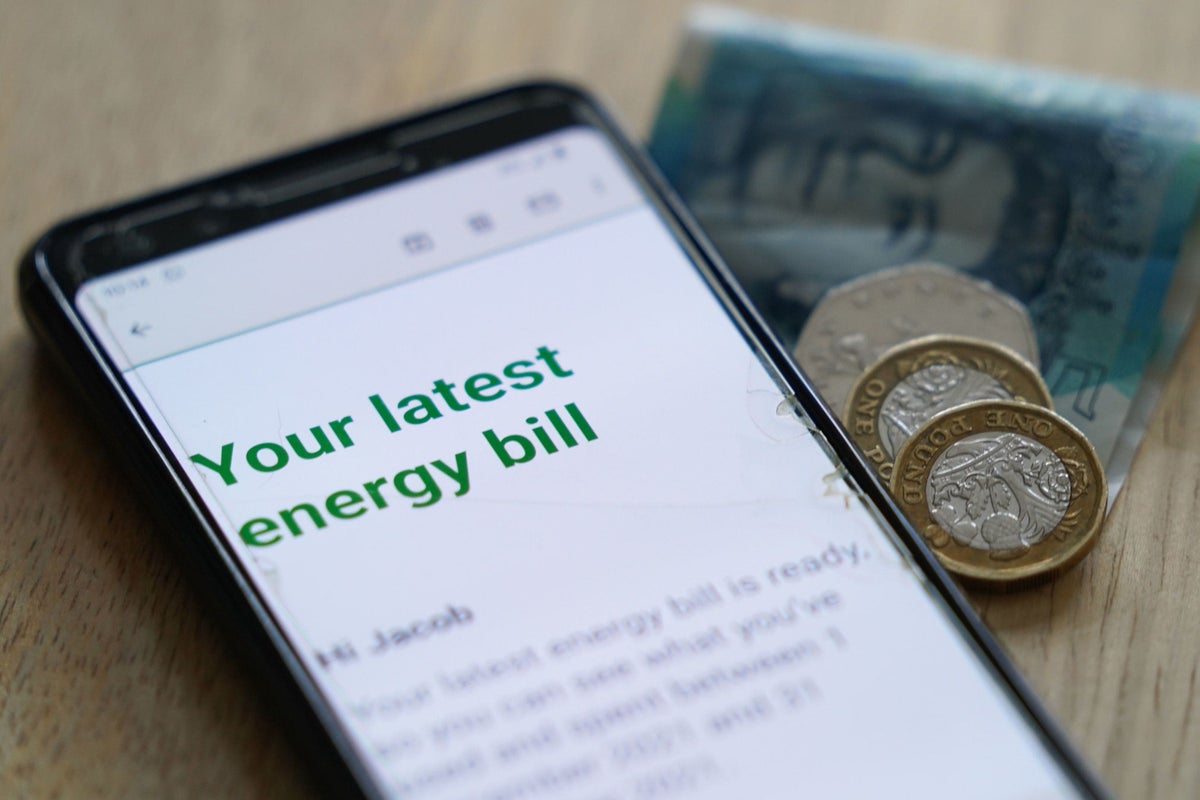
A fall in Ofgem’s energy price cap has come into effect amid concerns that households could still end up paying around 13% more than last winter.
The regulator announced in August that the cap on a unit of gas and electricity would reduce the average bill from £2,074 to £1,923 for the three months from October 1 in England, Wales and Scotland.
This is still more than 50% higher than pre-crisis levels, and the Government is yet to announce any financial support along the lines of last year, when the Energy Price Guarantee limited average bills to £2,500 per year and each household received a further £400 over six months to offset the soaring costs.
The measures brought the average monthly cost of energy down to £141 but this year, unless further support is announced, average costs from October to December will rise to £160.
Analysts Cornwall Insight predict the cap will rise again by £73 – or around 3.5% – in January due to increases in wholesale energy prices.
Under Ofgem’s definition of average energy use, known as Typical Domestic Consumption Values (TDCV), which they used when they made the announcement of the October cap, this would see an average bill go from the current £1,923 a year to £1,996.
However Ofgem has just lowered the TDCV to £1,834 to reflect a drop in the average household’s energy consumption – not to be confused with an £89 cut to the price cap.
Under Ofgem’s new TDCV, Cornwall Insight expects the price cap to increase from £1,834 to £1,897 in January.
It is then predicted to dip slightly in the second quarter of the year.
The cap does not set an upper limit on actual bills, and households will pay more or less depending on how much energy they use.
Bill payers are advised to submit meter readings as quickly as possible, if they have not done so already, to ensure their supplier can accurately bill them for energy used before and after the price cap drop.
If members of Parliament on the House of Commons Energy Security Committee can see problems households will face, why can’t the Government?— Simon Francis
On announcing the latest cap, Ofgem chief executive Jonathan Brearley said that now energy prices are easing, the regulator has allowed suppliers to earn a little more money from customers.
He said: “This means there should be no excuses for suppliers not to be doing all they can to support their customers this winter, and to reinforce this we’ll be introducing a consumer code of conduct which we will look to have in place by winter.”
Mr Brearley is one of many to question the effectiveness of the price cap and point to the benefits of a social tariff, which would offer cheaper gas and electricity to those most in need.
Without that, experts expect that average energy bills will remain at around £2,000 for vulnerable households for years to come.
Simon Francis, co-ordinator of the End Fuel Poverty Coalition, which is part of the Warm This Winter campaign, said: “From October 1, all households in every part of the country will pay more on energy standing charges, more into the profits of energy firms and many are more in debt to their suppliers.
“Average energy bills are still almost double what they were three years ago and Government help for households, which was available last winter, has been axed. This means this winter will feel worse for many households.
“If members of Parliament on the House of Commons Energy Security Committee can see problems households will face, why can’t the Government? The MPs’ recent report on tackling the energy bills crisis sets out sensible recommendations to help vulnerable households and ministers need to implement these ideas immediately.”
A survey for uSwitch suggests 23% of households are planning to delay turning on their heating this year due to high costs.
Most expect to turn on their heating on October 12, an average delay of just two days on last year.
Younger consumers appear to be less worried about energy bills, with 38% of those aged 18 to 34 having turned the heating on already, compared with 24% of 35 to 55-year-olds and 17% of over-55s.
Natalie Mathie, a uSwitch energy spokeswoman, said: “Nearly a quarter of people say they’ll turn on the heating later this year to save money on energy bills, and it’s concerning that two million households plan to get through winter without heating.
“If you don’t want to turn the heating on yet, there are cost-effective alternatives for staying warm, like using a portable heater, hot water bottle or electric blanket.
“There’s nothing worse than having your boiler break down when it’s freezing outside and every engineer is busy, so it makes sense to check your boiler is serviced now.”
Opinium surveyed 2,000 UK residents online for uSwitch between September 15 and 19.







